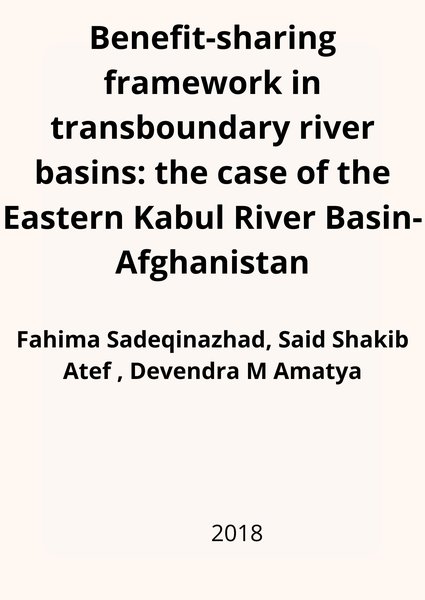




Год: 2018
Разделы: Научные публикации
Темы: Вода
Авторы: Sadeqinazhad Fahima, Atef Said Shakib, Amatya Devendra M.
Страны: Афганистан
Источник: Central Asian Journal of Water Research
Файлы для скачивания:
This research explores the benefit of collaboration between the littoral countries beyond water allocation and sharing as a theoretical framework that would be a useful tool for extending Afghanistan and Pakistan cooperation for a sustainable improvement and development of the Kabul River Basin (KRB). The main goal isto highlight the concept of benefit sharing and its framework in general terms as well as in the context of KRB. The basin planning and water transboundary issues could greatly be changed in accordance with this theoretical framework, leading the game from a zero sum to a positive sum. In addition to that, it potentially results in avoidance of conflicts and pave the ground for a motivated cooperation. Mutual cooperation can bring more water for sustainable use in the basin, reducing soil erosion, mitigating drought,and ensuring food security. The findings of this study have shown that the benefits of water sharing in transboundary river basins are,mainly,due to co-riparian states’ collaborative efforts to decrease the expenses and increase the outcomes. The impacts of joint investments in both states can yield a bundle of benefits including, but not limited to flood control, reduction of sedimentation, availability of more water and hydropower production. The points mentioned above, in turn, can also ensure food security, mitigate drought, and avail renewable energy. In transboundary rivers all attempts and efforts should be geared towards identifying the typologies of benefits, aspects of benefits, scenarios of benefits, and the optimization/maximization of benefits.
По всем вопросам сотрудничества обращайтесь по эл.адресу или телефону: